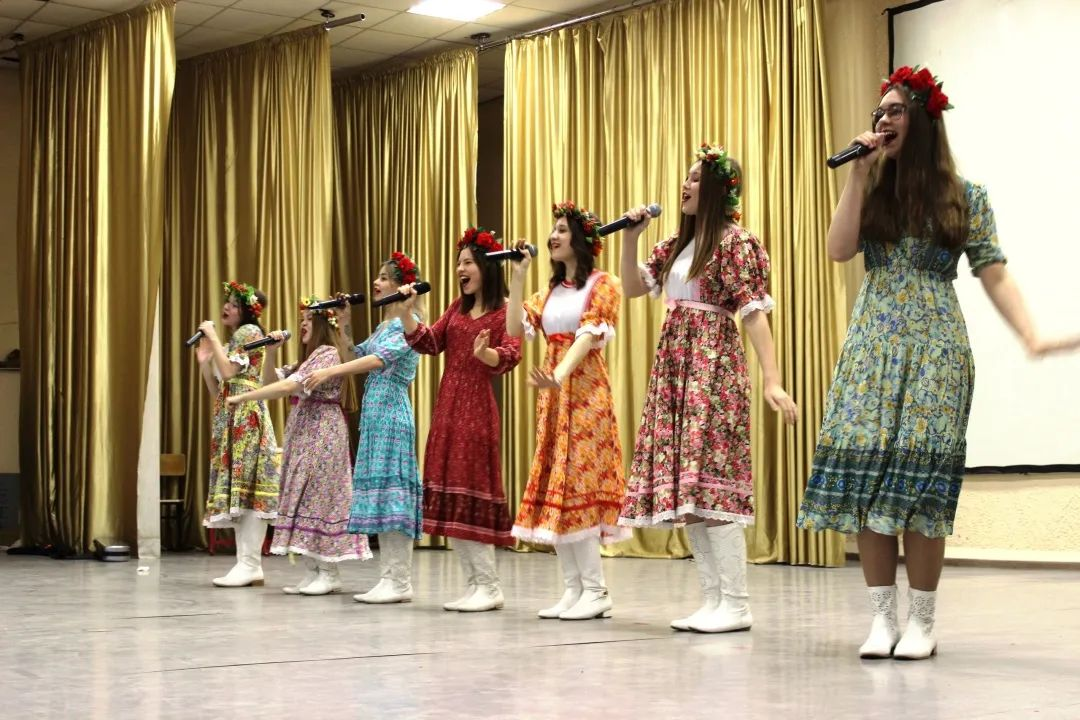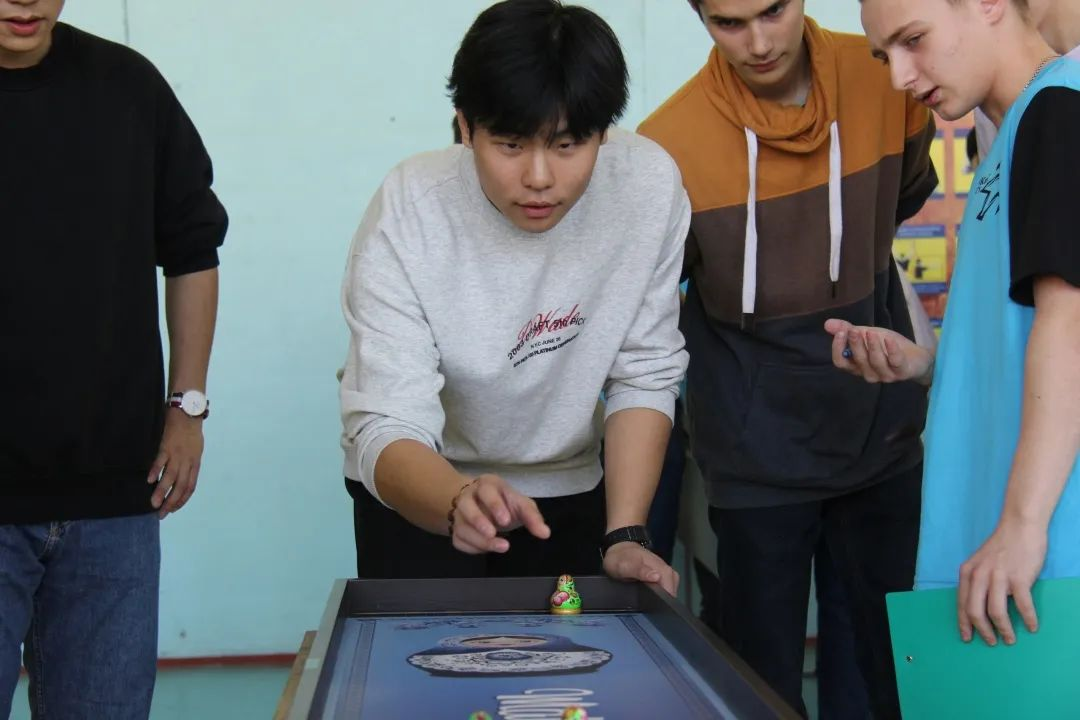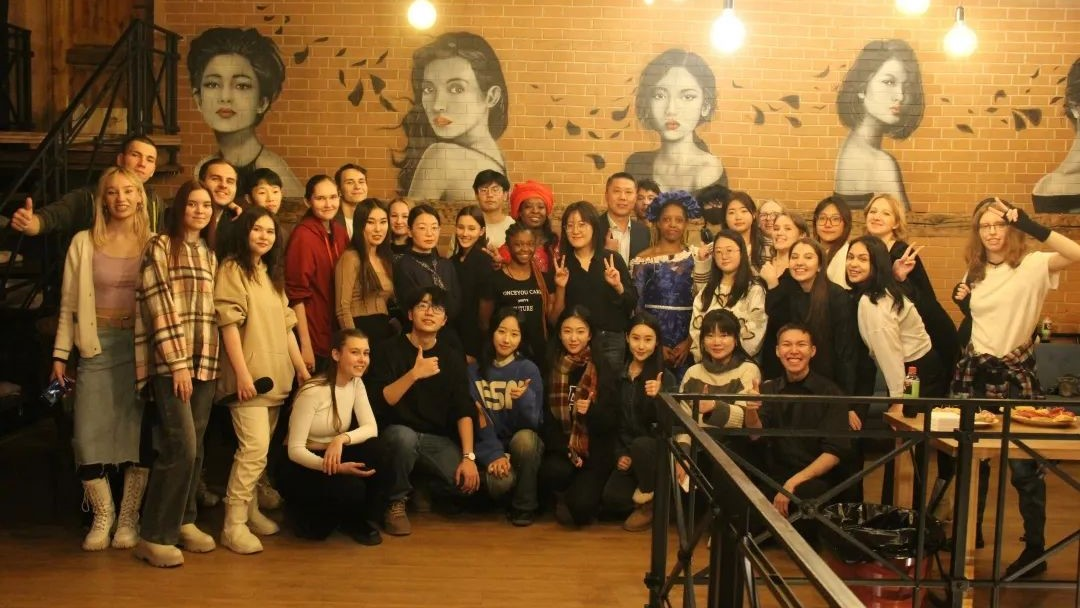From November 15th to 22nd, thirteen outstanding teachers and student representatives from Shenyang Insititue of Technology went to Russia to participate in the 85th anniversary celebration of the post-Baikal State University and other activities, engaging in cultural exchanges between China and Russia, singing the song of friendship between China and Russia.
Zhou Yongchang attended the opening ceremony of the 85th anniversary celebration of the post-Baikal State University and gave a speech. Zhou Yongchang stated that our school actively responded to the “Belt and Road” initiative and has a deep friendship with the post-Baikal State University, maintaining close cooperation in various aspects such as talent cultivation and scientific research, achieving fruitful results in cooperation. This event established a platform for student exchanges between the two universities, further deepening the understanding of Chinese and Russian culture among students from both universities, strengthening the friendship between the two universities, and allowing both universities to take a new step forward in cultural exchange and cooperation. Zhou Yongchang represented the school in presenting a gift to the post-Baikal State University.
Mikhail Igorevich, Vice President of the post-Baikal State University, expressed the hope that the two universities can continue to expand cooperation content, broaden cooperation channels, carry out more exchange activities, and build a bridge of communication for students from both universities.
At the celebration, Chinese and Russian students presented a cultural feast on the same stage. Eleven students from our school performed traditional Chinese music and dance, showcasing the unique charm of Chinese traditional culture. The traditional Russian songs and dance performances presented by the Russian students were a breathtaking visual experience. The students from both universities also engaged in language learning, singing Chinese and Russian songs together, playing Russian tabletop games, and painting traditional Russian Matryoshka dolls. They also exchanged gifts with ethnic characteristics. After the meeting, the students from our school visited the post-Baikal State University and the city of Chita, Russia, to learn about the study and life of Russian college students and experience the rich Russian culture.
Chinese and Russian students have expressed that they have benefited greatly from this activity. Through mutual communication, they have developed a deeper understanding of the culture of both countries and their cross-cultural communication skills have been continuously improved.
Olya Aleksandrova, a student from the post-Baikal State University, said, “Chinese culture is profound and wonderful, and the beauty of Chinese characters and music has deeply attracted me. I hope to become a cultural ambassador between China and Russia, share Russian culture with Chinese youth, and tell Chinese stories to Russian youth.”
Victoria Vitalieva, from the post-Baikal State University, said, “With the promotion of the ‘Belt and Road’ initiative, education cooperation between China and Russia is extensive and in-depth. More and more Russian youth hope to study in China. The ‘Belt and Road’ is like a bridge that connects China with participating countries, promoting cultural exchanges and cooperation, and converging ideas and values.”
Guo Ruiyang, a student from Shenyang Institute of Technology, said, “This cultural exchange trip to Russia has been very rewarding for me. It not only deepened my understanding of Russian culture, but also presented Chinese culture to Russian students. The ‘Belt and Road’ initiative has built an important platform for young people of participating countries to share knowledge and deepen friendly exchanges and cooperation, and has also promoted the mutual learning and cultural integration and innovation of civilizations. I will shoulder the responsibility of spreading Chinese culture and learn from Russian students to contribute to the cultural exchange between the two countries.”
Translated by Basic Courses Department




